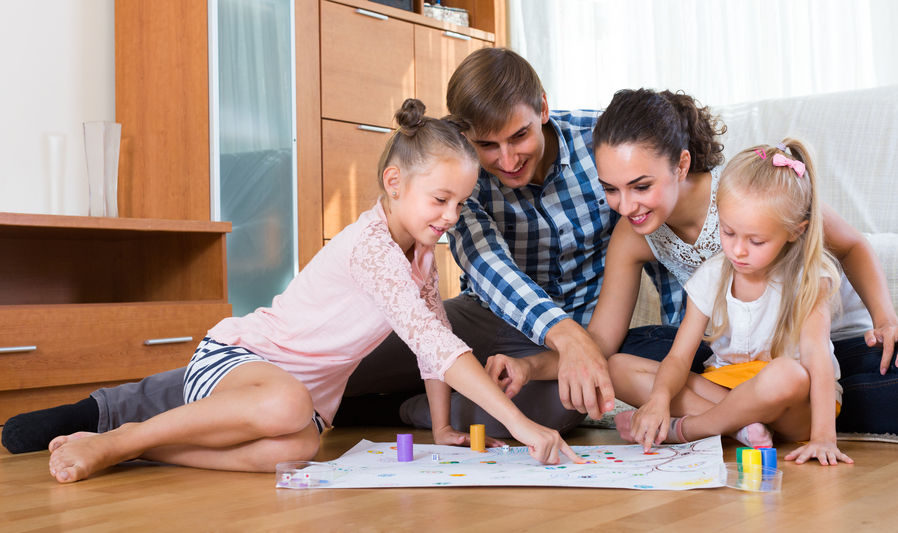Building Resilience in Children
Resilience is defined as a person’s capacity to snap back in response to adversity. It is the ability to keep working constructively through setbacks and problems.
Building Resilience will help your child to be able to solve the problem rather than get discouraged by it.
I see many children who are challenged and stressed at little things that come their way in their day to day lives. They could be faced with challenges at school, with friendships, with sudden changes in family circumstances, sitting an exam, moving to high school or moving into a new house.
If we can build resilience in children then they will know how to deal with these situations that are not really in their control. Resilience is defining yourself as being a winner who succeeds because of strong inner values and effective coping skills.In other words, if we can build Resilience in children, they can triumph over problems otherwise the problems will triumph.
One of my favourite quotes said by ― Lorii Myers in her book, No Excuses, The Fit Mind-Fit Body Strategy Book “Resilience is not a commodity you are born with, waiting silently on tap. It is self-manufactured painstakingly over time by working through your problems and never giving up, even in the face of difficulty or failure.”
Why is it important to develop Resilience in Children?
Resilience is highly connected to one’s self identity and how their world is constructed- in NLP Terminology – their model of the world.
Those who are resilient do well in despite adversity. They just barge through all the obstacles that may come their way. Nothing really affects them.
Being Resilient will help the children in

- Being or feeling happy
- They will be happier in their relationships
- They will be more successful at school
- They are less likely to feel sad
- Will be better at coping with failures/ disappointments
- Will have healthy behaviours,
- Go into higher educational or skilled qualifications
- Get better employment when they are older,
- Have better mental well being
- Will have quick and better recovery from illness.
The earlier we can teach the kids to be resilient the better it is.
Is Resilience related to confidence?
Yes Absolutely. A resilient person is a confident person. Confidence is an outcome of resilience. They go hand in hand.
Like children who are resilient confident kids feel good about themselves, feel proud of what they achieve, believe in themselves and keep trying until they succeed- a qualify of resilient children
They are also able to see the good qualities of other people and are not affected by the problems that come their way.
What builds Resilience in a child and what do we need to know about building it?
The children will need the support of both outsiders and their inner strengths to build resilience.
So, the outside supports are
Parent-Child relationship–

- give your child lots of attention and love
- play with your child
- listen to them when they want to tell you something, however unimportant it might seem (something that you might think unimportant might be the most important thing for them)
- show empathy
- help the children identify and express their feelings
- encourage them to talk about their thoughts.
And as positive role models in the child’s life- adults and school teachers etc. – Children learn what they see.
- by being patient
- be in charge of your emotions
- stay positive
- help others
- take care of your health
- show them how you cope with stress- maybe take 3 deep breaths when you get stressed
- Stop and rethink
Help the children develop inner strengths like
- Self-control
- Good Thinking skills
-
Confidence
-
Positive outlook
-
Responsibility and participation.
So, the outside supports and inner strengths work together to develop a child’s resilience.
How can NLP help in building Resilience?
NLP (Neuro Linguistic Programming) is about a person’s thinking, the language they use not just to communicate to others but also, the language they use in their head which in turn influences their behaviour and thus produce the results they have.
With NLP, we can help the child learn how to change/organise their thinking so they can get themselves to think more positively, thus helping them focus on their individual strengths.
Once children know that they are in control of their own thoughts they can control the outcomes and are more likely to realize that they have the ability to bounce back. Thus, making them more resilient.
NLP also teaches children techniques that help them cope with situations that are not really under their control and we all know that we all have situations like this in our day to day lives.
Learning to cope effectively with stress will help your child be better prepared to overcome life’s challenges.
As an NLP Master Practitioner, I TEACH CHILDREN TECHNIQUES that help them cope with situations that are not under their control.
Learning to cope affectively with stress will help your child be better prepared to overcome life challenges.
I help the children learn how to install NLP positive Anchors that are a quick and easy way to enter a resourceful state on demand.
NLP – Anchor is simply a connection between a stimulus and a certain emotional response. For e.g., has listening to a song reminded you of an event or evoked an emotion in you?
In NLP, we call this Anchoring.
That is an anchor (external trigger); and If sometimes you are feeling low you might want to do something that makes you feel happy (these are internal triggers) so, this is how we do it.
You ask the child to use their imagination and think of a time in the past when they were easily able handle a problem well and succeeded at it. When they start feeling the positive feelings, create a trigger – I’d recommend rubbing two fingers together, or rubbing an earlobe.
This may take a bit of practice.
They can then use these triggers every time that they are feel like giving up on something. Thus, giving them a tool to cope.
Namita Bhatia
NLP4Kids Practitioner at Kids Mindset Therapy Ltd
http://childtherapypinner.nlp4kids.org/

Leave a Reply